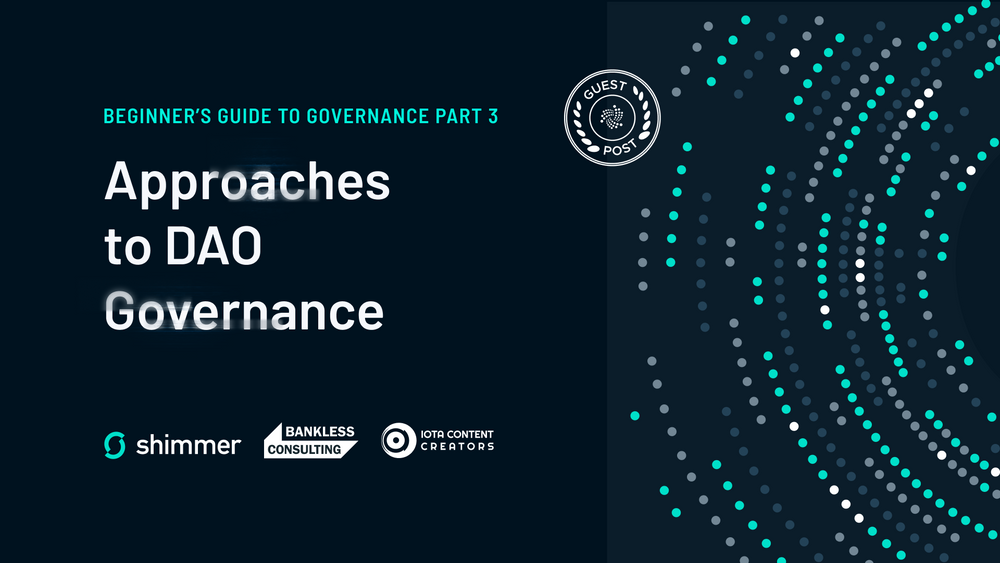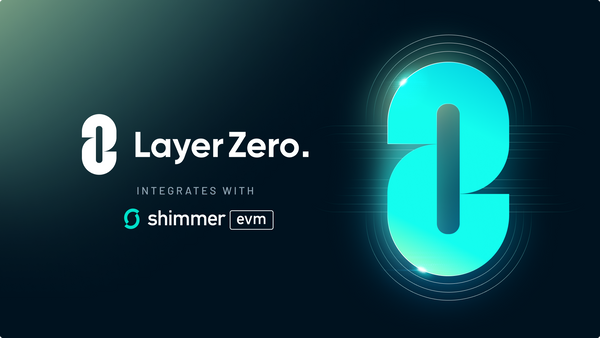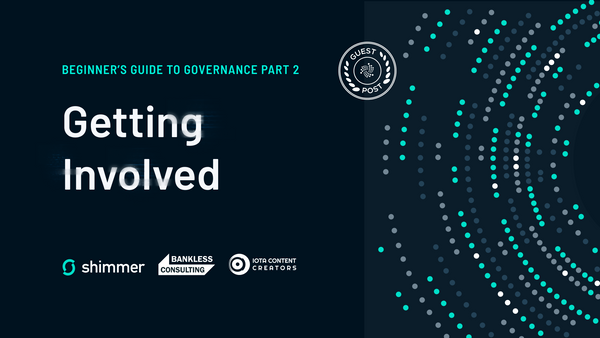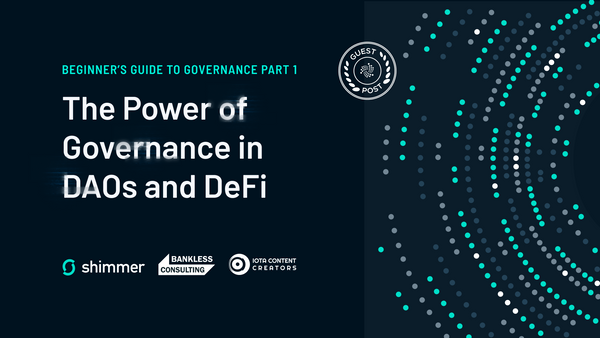Beginner’s Guide to Governance Part 3
Approaches to DAO Governance
TL;DR:
Two notable DAOs, Maker DAO and Nouns DAO, have different approaches to governance. Maker DAO empowers token holders to make on-chain decisions, while Nouns DAO uses NFTs for governance and values vision alignment over structure. DAOs are evolving, and active involvement in discussions and proposals is crucial for shaping their future.
Having looked at the development of DAO governance in Part 1 and the five stages of governance in Part 2, we now highlight two popular DAOs and how they have evolved their approaches to governance.
Maker DAO

Holders of the MKR token are responsible for governing the Maker Protocol (https://makerdao.com/en/), one of the oldest DAOs in the blockchain space. Their governance includes adjusting policy for the DAI stablecoin, choosing new collateral types, and improving governance itself. Anyone can hold MKR and all are welcome in Maker DAO.
Maker DAO started as a foundation. The goal was to enable the community to make all governance decisions, so the foundation was eventually dissolved and Maker DAO was born. Now, all of the power is in the hands of the DAO, and the responsibility for stewarding the protocol rests on the shoulders of the community. Although not without its share of hiccups and growing pains, Maker DAO is still one of the largest DAOs in terms of Total Value Locked (TVL), so clearly they’ve been successful.
Due to its large TVL and need for high security, Maker DAO’s governance decisions are all on-chain and every proposal is voted on by token holders. However, token holders can also trust their votes to delegates who work almost full-time on improving the protocol and providing reports to token holders regarding their position on various proposals. Token holders can then review the delegates’ reports to decide if they will keep their delegation or choose a different delegate at any time.
Maker DAO also has a tiered system, similar to that in IOTA, where a different trust level within the governance structure can allow for different sets of permissions. This allows for more educated, less exploited voting outcomes and helps support the delegation system.
Nouns DAO

Nouns DAO (https://nouns.wtf/) is a newer DAO that utilizes a fork of compound governance and is the main governing body of the Nouns ecosystem. The Nouns DAO treasury receives 100% of ETH proceeds from daily Noun NFT auctions. Each Noun NFT is an irrevocable member of Nouns DAO and entitled to one vote in all governance matters. Noun votes are non-transferable (if you sell your Noun NFT the vote goes with it) but delegatable, which means you can assign your vote to someone else as long as you own your Noun.
Offering one new Noun NFT per day results in very linear, sustainable growth. One potential new person per day can participate in their governance structure by purchasing a Nouns NFT. This way, they’re able to get to know one another much better than in the case where a large number of NFTs were offered at once, as individual voices can be lost with a large influx of new community members. Their process allows the founders to pass down their vision and mindset to (at most) one new person per day. This fosters a strong sense of cohesion, culture, and community.
In terms of structure, Nouns DAO almost prides itself on its lack of structure. It’s the vision that is of the utmost importance to this DAO. As long as the proposal is in line with the overall vision, it can be funded. This is even the case if a proposal requires a fork of Nouns DAO or a new, separate sister project. This flexibility is a clear departure from most other protocols, but a novel approach that is gaining some traction.
Making sure your voice is heard
Compared to other forms of organizations, DAOs are still in their infancy. Through trial and error, governance processes are adapted and refined, and each DAO can learn from the successes and failures of others.
While there may be similar steps to improving any protocol, the most important action one can take is to simply get involved! In most cases, involvement starts by contributing to discussions about proposals and ideas. This can be highly rewarding as it solidifies the individual’s place in the community, ensures that their voice is heard, and involves them in the betterment of the protocol.
Introduction to Governance
Part 1: The Power of Governance in DAOs and DeFi
Part 2: Getting Involved
Part 3: Approaches to DAO Governance
Also in this series
Beginner's Guide to Crypto Wallets
Beginners Guide to DEX vs. CEX
Beginner's Guide to DeFi Lending & Borrowing
Beginner's Guide to Yield Farming



